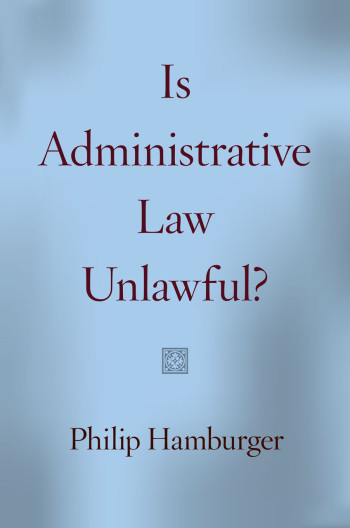Will eliminating Chevron deference result in increased partisan judicial review of agency interpretations of law?
The Unlawful Administrative State: A Conversation with Philip Hamburger
The standard narrative used to justify the existence of the administrative state and thus legitimate its powers is that America in the late 19th and early 20th centuries entered into a realm of industrialization, corporate power and concentration, density and urbanization, among other causes, that entailed the need for expert rule in executive agencies. Necessity of government action required courts and rule-making agencies that could adjust the social order to rapidly arising needs not anticipated in the ‘horse and buggy’ Constitution. However, what if there really is nothing new under the sun about administrative power? Instead, what if its call for the exercise of judicial and legislative powers, apart from the channels of the Constitution, also found comparative expression in medieval and early modern legal absolutism, particularly in the Stuart monarchs? That’s the stunning claim made by Philip Hamburger in his latest book, Is Administrative Law Unlawful?
Hamburger does not make formal arguments of constitutional law, instead he seeks to show that administrative law, which he hesitates to even properly call law, is a fundamental threat to our liberties in its very operation. The administrative state, he believes, must first and foremost be criticized for the deprivations it works on individual liberty in defiance of the core protections set forth in the Anglo-American legal tradition. This conversation explores how the administrative state operates above and apart from the law. We focus on the detailed legal historical arguments made in the book that compare the operations of our administrative state with the prerogative powers of the Stuarts as the best way to understand the constitutional settlement of the 17th century that law must be exercised through the law of the land and the courts. This settlement naturally found expression in our own Constitution. The reasons why our Founders set forth these limitations are at the heart of Hamburger’s book and this podcast.



